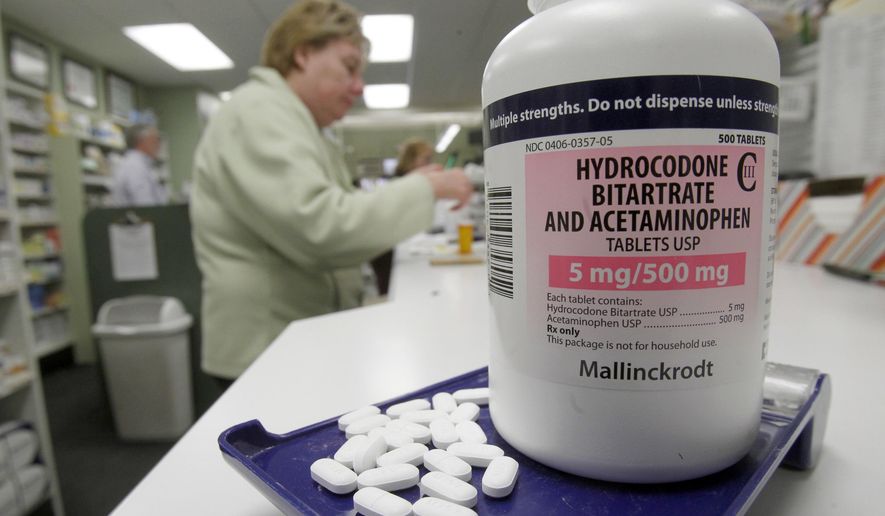OPINION:
If you’ve never experienced chronic pain, or been around someone with a pain that just won’t end, it’s easy to dismiss opioids as evil and to make grand calls for their prescription restriction, or even outright bans.
But walk through any hospital’s critical care ward — spend some time with someone whose body has suffered a shock and awe that can’t be imagined — and it’s not too easy to simply say, hey, take an aspirin.
Hey, mind over matter.
Hey, take this, not that — it’s just as effective. That’s not always the case.
Military members who’ve had their limbs blown off might have a thing or two to say about their phantom pains.
Car wreck victims who’ve had their bodies crushed and backs and spines twisted might have a different story.
Workers who’ve suffered falls, equipment failures and other accidents that have traumatized their bodies and left them unable to physically function might offer a different point of view.
And it’s one that goes like this: Only oxycodone helps. Only OxyContin or Percocet pills blot out the pain.
These are the people opioids were intended to help — the long-term, long-time pain sufferers who’ve tried other means of relief but find, as researchers and medical experts themselves admit, their specific pains respond best to prescribed opioid treatments.
President Donald Trump is poised to declare the opioid crisis a national emergency — meaning, the federal government is going to take regulatory and oversight action to help put a stop to the scores of addiction and overdose deaths that have occurred in recent years, due to improper ingestion of the drug.
“We’re going to spend a lot of time, a lot of effort and a lot of money on the opioid crisis,” Trump said, in a statement. “We’re going to draw it up and we’re going to make it a national emergency. It is a serious problem the like of which we have never had. You know, when I was growing up they had the LSD and they had certain generations of drugs. There’s never been anything like what’s happened to this country over the last four or five years. … But this is a national emergency and we are drawing documents now to so attest.”
Caution, however, is called for here.
How this message is going to be received is this way: Pain doctors, trained in determining which medication works best for their individual patients’ needs — trained in monitoring their patients for adverse effects, as well as for abusive use — will think twice about prescribing opioids. Hospital staff — squeamish nurses, doctors with specialities other than managing pain, administrators and staffers worried about lawsuits and government backlash, will do similarly. And that means patients with true pains, the type of which only opioids ease, will likely suffer.
They’ll be subjected to more questioning, more suspicions, more hurdles to jump to receive their pain pills. Let’s be real here: True pain sufferers don’t really want to take pain pills — they’re not looking for a high. They just want to be able to function, to go to work, to play with their kids, to have a night’s rest.
But government crackdowns on opioids will impact these patients first and hardest. Their prescription amounts will be cut, and they’ll have to jump through additional hoops to obtain enough pills to get them through the month. Their pharmacies will suddenly refuse to fill their prescriptions for codeine. Their pain specialists won’t be covered by their insurance plans any longer.
But the abusers and illegal users?
They’ll find something else to fill the void. They’ll get their highs some other way.
It’s not that the opioid deaths of recent times should be taken lightly, or even ignored. It’s just that opioids were created for specific pain purposes, and those who meet that criteria should not find themselves in the frightening and pitiful position of having to practically beg for their pain meds.
That’s not the White House’s intent. And it’s not the medical community’s intent, either.
But government crackdowns on health matters that best belong between the patient and doctor are never advantageous to the patient. In this case, in this opioid national emergency case, caution is warranted. Leaving true pain sufferers out in the cold would be an unintended consequence that would nevertheless leave those already distressed, already besieged by sad circumstances, in dire, inconsolable straits — and redundancies and all, that’s not overstating.




Please read our comment policy before commenting.